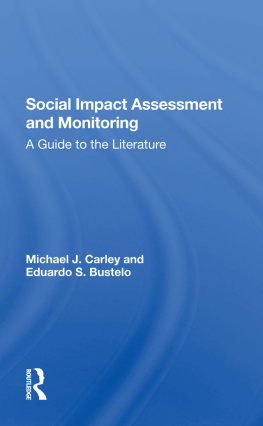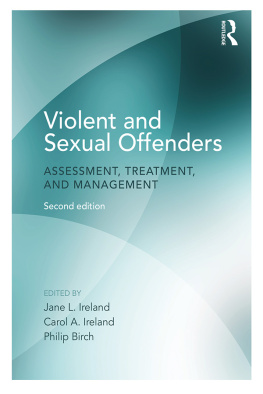Sara Miller McCune founded SAGE Publishing in 1965 to support the dissemination of usable knowledge and educate a global community. SAGE publishes more than 1000 journals and over 800 new books each year, spanning a wide range of subject areas. Our growing selection of library products includes archives, data, case studies and video. SAGE remains majority owned by our founder and after her lifetime will become owned by a charitable trust that secures the companys continued independence.
Los Angeles | London | New Delhi | Singapore | Washington DC | Melbourne

Brian J. Taylor 2017
First published as Professional Decision Making in Social Work in 2010
Second edition published as Professional Decision Making and Risk in Social Work in 2013
Third edition published in 2017
Apart from any fair dealing for the purposes of research or private study, or criticism or review, as permitted under the Copyright, Design and Patents Act, 1988, this publication may be reproduced, stored or transmitted in any form, or by any means, only with the prior permission in writing of the publishers, or in the case of reprographic reproduction, in accordance with the terms of licences issued by the Copyright Licensing Agency. Enquiries concerning reproduction outside these terms should be sent to the publishers.
Library of Congress Control Number: 2017931588
British Library Cataloguing in Publication Data
A catalogue record for this book is available from the British Library
ISBN: 978-1-5264-0104-5
ISBN: 978-1-5264-0105-2 (pbk)
Learning Matters
An imprint of SAGE Publications Ltd
1 Olivers Yard
55 City Road
London EC1Y 1SP
SAGE Publications Inc.
2455 Teller Road
Thousand Oaks, California 91320
SAGE Publications India Pvt Ltd
B 1/I 1 Mohan Cooperative Industrial Area
Mathura Road
New Delhi 110 044
SAGE Asia-Pacific Pte Ltd
3 Church Street
#10-04 Samsung Hub
Singapore 049483
Editor: Kate Keers
Production controller: Chris Marke
Project management: Swales & Willis Ltd, Exeter, Devon
Marketing manager: Camille Richmond
Cover design: Wendy Scott
Typeset by: C&M Digitals (P) Ltd, Chennai, India
Printed in the UK
At SAGE we take sustainability seriously. Most of our products are printed in the UK using FSC papers and boards. When we print overseas we ensure sustainable papers are used as measured by PREPS grading system. We undertake an annual audit to monitor our sustainability.
Foreword
All the texts in the post-qualifying social work practice series have been written by people with passion for excellence in social work practice. They are written primarily for social workers who are undertaking post-qualifying social work awards but will also be useful to any social worker who wants to consider up-to-date practice issues.
Brian Taylor has made an enormous contribution to the social work profession over the years and this third edition of his text is another excellent example of his contribution. Fundamentally, social work practice is all about making decisions, assessment and managing risk and this text is a gold mine of advice and support to all social work professionals who seek to serve their clients in the very best way possible. Brians passion for research and practice excellence is so evident through this text and I warmly commend it to all.
The books in this series are also of value to social work students as they are written to inform, inspire and develop social work practice.
Professor Keith Brown
Series Editor
Director of the National Centre for Post-Qualifying Social Work and Professional Practice
Bournemouth University
About the author
Brian Taylor is Professor of Social Work at Ulster University, where he has a lead role in post-qualifying education and training. His research and teaching interests are in decision making, assessment, risk and evidence-based practice, and he leads a research cluster focusing on this area ( www.ulster.ac.uk/dare ). He previously spent 12 years as a practitioner and manager in social work, residential care, primary school teaching and youth work. He worked for 15 years in social work training, and organisation development in health and social care, including three years as a project manager implementing new childrens legislation. His doctorate was on risk and decision making in community care and he had a lead role in developing the Northern Ireland Single Assessment Tool for the health and social care of older people. Brian has undertaken research and teaching for over 20 years on the related topics of assessment, risk and decision making. His is an author of Understanding and Using Research in Social Work and editor of Working with Aggression and Risk in Social Work, both published by Sage. www.ulster.ac.uk/staff/bj.taylor.html
Preface to the third edition
No writer writes out of his having found the answer to the problem; he writes rather out of his having the problem and wanting a solution.
(May, 1969, p170)
Four years have passed since the second edition of this book and it seems timely to undertake a revision. The context of social work is ever-evolving, particularly in relation to the challenges of risk; our understanding of professional judgement and decision making; the development of assessment processes; and gradually increasing respect for social workers as expert witnesses in court proceedings. A recent UK government report highlighted the need for the profession to focus on professional judgement (Kirkman and Melrose, 2014). This is a timely contribution to stimulate our research and teaching on this topic, and a valuable complement to our stronger engagement with issues of assessment, risk and decision processes.
This third edition brings these three elements together more cohesively than the previous editions. New material has been added on assessment tools and analysis in assessment; use of knowledge in decisions in the context of professional working relationships; client involvement in assessment, risk-taking and decision making including problem solving; impact of the Human Rights Act on decisions by public sector social workers; continuing developments in our limited knowledge of risk factors, and the inclusion of mitigating and desistance factors; the distinction between risk and uncertainty; decision trees; web-based knowledge supports; emerging conceptualisations of risk relevant to how we communicate about risk with clients, families and other professionals; supervision as a process for managing risks and decisions; connecting the time process in managing risks, decisions and re-assessment; skills in leading multi-professional decision-making processes; and principles for organisations in carrying out their responsibilities for managing risk and decisions.
In particular, this edition includes some preliminary comments on the emerging concept of psycho-social rationality









